GUAYAQUIL, ECUADOR - APRIL 11: A voter casts her ballot during voting in the second round of the presidential elections at the Unidad Educativa del Milenio Ileana Espinel Cedeño on April 11, 2021 in Guayaquil, Ecuador.
The polls open in Ecuador in the country's presidential runoff in which left-wing economist Andrés Arauz faces off against former conservative banker Guillermo Lasso.
(Photo by Gerardo Menoscal/Getty Images)
(CNN Spanish) --
Ecuadorians will go to the polls this February 5 to decide whether or not to accept the proposed reforms to the Constitution raised by President Guillermo Lasso through a referendum containing eight questions.
The objective of the plebiscite is for citizens to express whether or not they agree with the extradition of Ecuadorians who have committed transnational crimes, the formation of a Fiscal Council that elects and regulates the servers of the Attorney General's Office, reducing the number of assembly members, regulate the proliferation of political movements, reconsider the designation of State control authorities, modify the process of designation of the Citizen Participation Council, environmental care in protected areas and the delivery of compensation to communities and towns that support the generation of services environmental.
Different political organizations and political figures have expressed themselves to promote "yes" and "no" to the referendum.
CNN interviewed the Minister of Government, Francisco Jiménez, who explained his arguments for supporting the constitutional reforms, and on the other hand, the member of the bureau of the Citizen Revolution movement and Andean parliamentarian, Virgilio Hernández, who spoke of his reasons for opposing the plebiscite.
1. Extradition
Regarding the extradition of Ecuadorians who have committed transnational crimes, the Minister of Government, Francisco Jiménez, told CNN that this question opens the possibility of "lifting a constitutional lock" that prevents people who have committed crimes such as drug trafficking, human trafficking, among other transnational crimes, are tried in other countries that have been used to spread their tentacles.
Guillermo Lasso wants to go for re-election in Ecuador in 2025: "It is almost an inevitable obligation"
“Extradition is not for anyone or for those who take a cell phone on the street.
Extradition is for those who interfere in international organized crime.
It serves to establish levels of collaboration with other countries that have a better justice, prison and infrastructure system,” Jiménez said.
advertising
For his part, Virgilio Hernández, a member of the bureau of the Citizen Revolution movement and Andean parliamentarian, insists that this question is not going to change the problems of insecurity nor is it a "magic formula."
“It is not a question of having magic answers, but structural answers that really face the security problem now, but also in the medium and long term.
Drug trafficking follows the same rules as capital, where there is a country with an institutional weakness they think it is a propitious ground for their illegal activities and that is what happens here,” insisted Hernández, who opposes the referendum.
2. Fiscal Council
The second question of the referendum raises the appointment of a Fiscal Council to give autonomy to the State Attorney General's Office.
The Council would be in charge of selecting, evaluating and sanctioning the servers.
Currently, it is the Council of the Judiciary that fulfills this role.
Minister Jiménez says that the Fiscal Council would reinforce the work of the institution: “We want a strengthened prosecutor's office, an autonomous prosecutor's office that has the tools to prosecute crime.
In the process of combating crime, the role of the prosecutor's office is fundamental and that Fiscal Council is the most pertinent to reinforce its functions”, considers Jiménez.
Guillermo Lasso, President of Ecuador.
Credit: BASTIEN INZAURRALDE/AFP via Getty Images
Meanwhile, Virgilio Hernández, from the Correísta movement Revolución Ciudadana, rejects any attempt to change the role of the Judiciary: "It cannot be that because the institutions have not worked, because the Council of the Judiciary has not worked, that now it is thought that this It is the model that must be changed, what must be established is the responsibilities of those who have not allowed the model to work,” Hernández warned.
3. Reduction in the number of assembly members
The third question of the consultation proposes reducing the number of assembly members according to other percentage criteria, depending on the territory for which they are elected.
Currently the Parliament, the National Assembly of Ecuador, is made up of 137 legislators for a country of more than 18 million inhabitants.
For the reduction of legislators, the referendum proposes that they be elected according to the following criteria: one assembly member per province and one additional provincial assembly member for every 250,000 inhabitants;
2 national assembly members for every million inhabitants;
and 1 assembly member for every 500,000 inhabitants residing abroad.
Virgilio Hernández rejects this proposal because he insists that the reduction of legislators will be minimal and will reduce the representation by provinces and of assembly members who represent migrants abroad.
“The Assembly thing is a farce because how much is the reduction?
and this is important to tell the people, from 137 to 120. In other words, the representation of small and medium-sized provinces and that of migrants is left without representation or is reduced,” emphasizes Hernández.
Elections in Ecuador: Minister of the Interior delivers a report to the Prosecutor's Office on alleged links of 28 candidates with drug trafficking and other crimes
Meanwhile, Minister Francisco Jiménez maintains that the question is essential to improve the quality of representation in the country and of the laws that are approved in parliament.
"When there is no good proportionality between the geographical criteria of territory and the population criteria and representation, democracy suffers because that correlation is not good," he points out.
He insists that the current formula for the election of assembly members could be generating an "overrepresentation" in some provinces of the country and for this reason he believes in the need to "combine geographic criteria with population criteria," he says.
4. Reduction of political movements
The objective of the fourth question is to regulate and control the proliferation of political movements in Ecuador through the requirement of a minimum number of affiliates, equivalent to 1.5% of the electoral register of their jurisdiction and oblige them to keep a register of their members. , and that this registry be audited periodically by the National Electoral Council, the CNE.
Currently in Ecuador, according to the CNE, there are 279 registered political organizations, of which 272 are political movements.
The Minister of Government, Francisco Jiménez, says that this question will prevent the existence of "garage movements" that hinder governance in the Assembly.
“We want serious political organizations, that this implies a certain reduction is logical.
The most serious, the fittest, the most transparent, the most committed to their voters are the ones that survive, the rest normally have to disappear”.
But Virgilio Hernández has objections to this proposal.
He affirms that there is discrimination between political parties and movements: "It is to seek the participation of the old political parties, coalitions or alliances between movements should be encouraged," said the Andean parliamentarian.
5 and 6. Process for the appointment of the Citizen Participation Council and removal of powers
Questions five and six of the plebiscite propose eliminating the power to designate authorities that the Citizen Participation Council has, so that it is the National Assembly that carries it out through a combined selection mechanism.
In turn, it proposes the modification of the appointment process of the members of the Participation Council, which is also carried out by the Assembly.
The Ecuadorian Constitution of 2008 established the creation of the Council for Citizen Participation and Social Control as an autonomous entity that, among other things, promotes participation and social control of public affairs, fighting corruption and advocating for transparency. .
Virgilio Hernández, from the Revolución Ciudadana movement, maintains that these two questions are the core part of the referendum proposed by President Guillermo Lasso: "this is the center of the consultation, with such a long transition process what the president is doing is seeking control authorities that cover his back for the rest of his term and eventually also, given the possibility of his re-election," said Hernández.
Indigenous demonstration in Quito, Ecuador (Photo by MARTIN BERNETTI/AFP via Getty Images)
But Minister Francisco Jiménez believes that the mechanism of mixed selection of authorities could improve the level of participation: "it is not the Assembly that is only going to choose, it is a mixed system that will suppose the open participation of those who register for a selection process, the participation of different institutions that are going to propose their shortlists and then the selection, based on these shortlists, by the Assembly, according to what the Executive sends,” he explained.
7 and 8. Environmental care in protected areas and the delivery of compensation to the communities
The last two questions of the referendum in Ecuador propose incorporating a water protection subsystem into the National System of Protected Areas, as well as compensation for people or communities that support the generation of environmental services.
Minister Jiménez says that the Government wants to encourage people to improve care for the environment and to lift some constitutional locks that allow them to participate with the possibility of obtaining a profit.
"Opposing questions that have to do with the environment is not understanding that we have a country with an environmental vein that demands the protection of our water sources and that is also the guarantee of future prosperity and tranquility," said the official.
But for parliamentarian Virgilio Hernández, who promotes voting "no" in the referendum, these last two questions are "a hitch" to achieve the positive vote of the population.
He adds that they are not going to solve the structural problems in environmental matters.
What else will be chosen this February 5 in Ecuador?
In addition to the referendum, the South American country will hold sectional elections to choose the representatives of all the provinces, as well as the members of the Council for Citizen Participation and Social Control (CPCCS) and a specific popular consultation for the inhabitants of the Sevilla Don Bosco parish. in the province of Morona Santiago that they must decide if they want it to become a canton.
Referendum

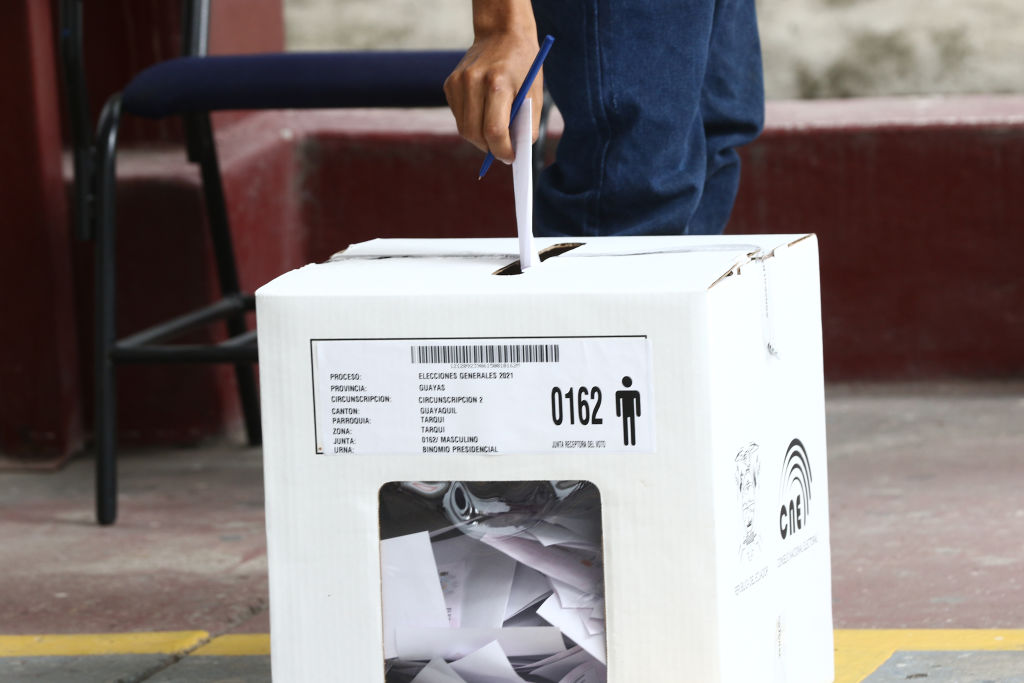
/cloudfront-eu-central-1.images.arcpublishing.com/prisa/Y3U2NXZN6O4Z43I7SEKQ4HTWOI.jpg)
/cloudfront-eu-central-1.images.arcpublishing.com/prisa/NYNKKIEXBFHFFG6GV65QVUUAL4.jpg)
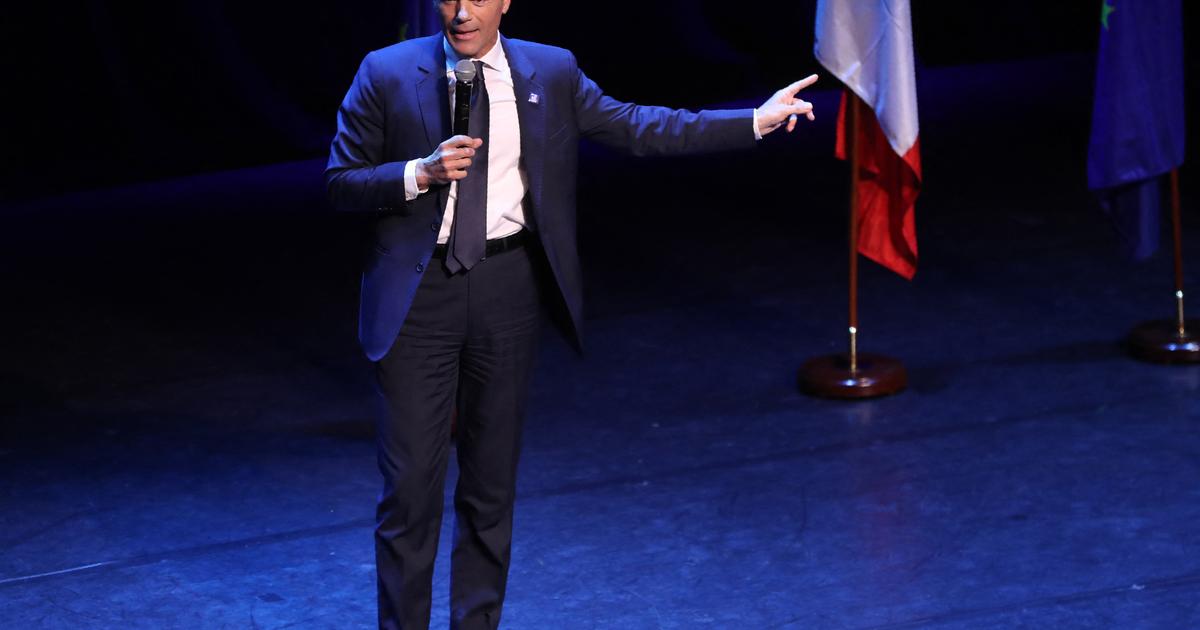

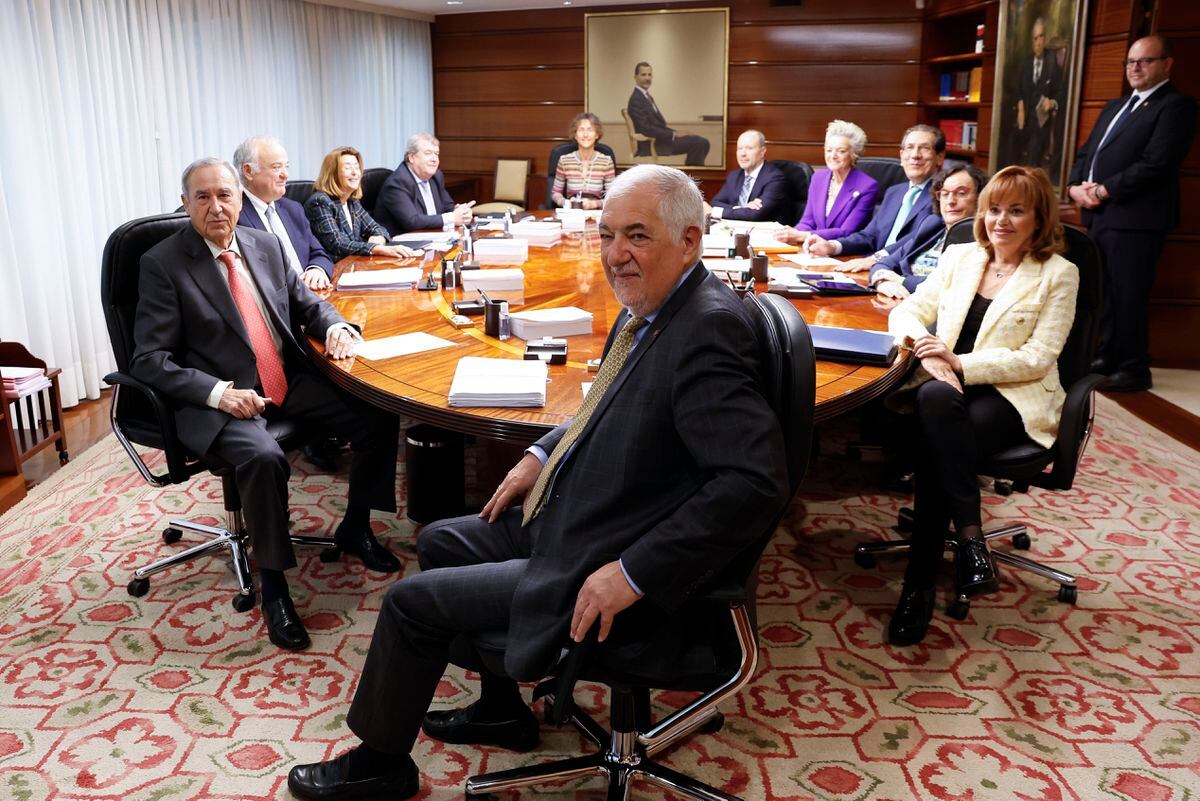
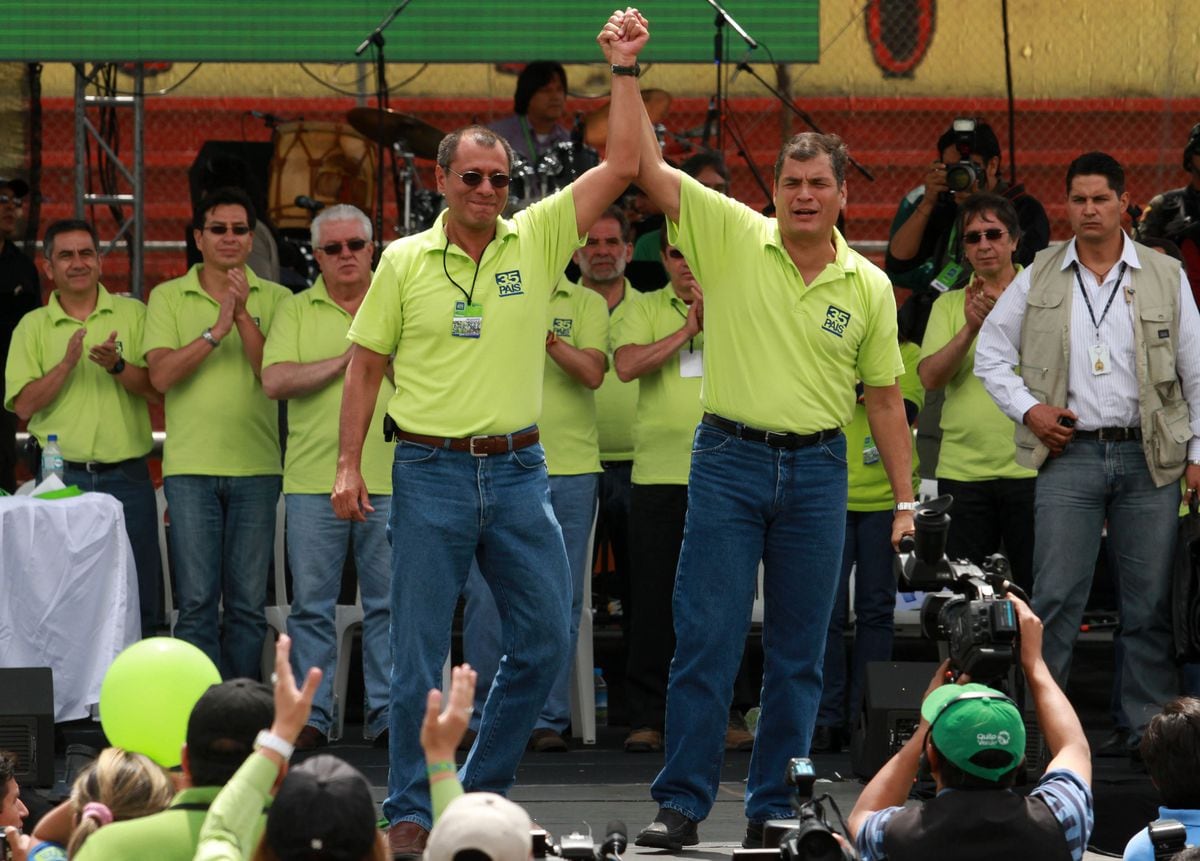
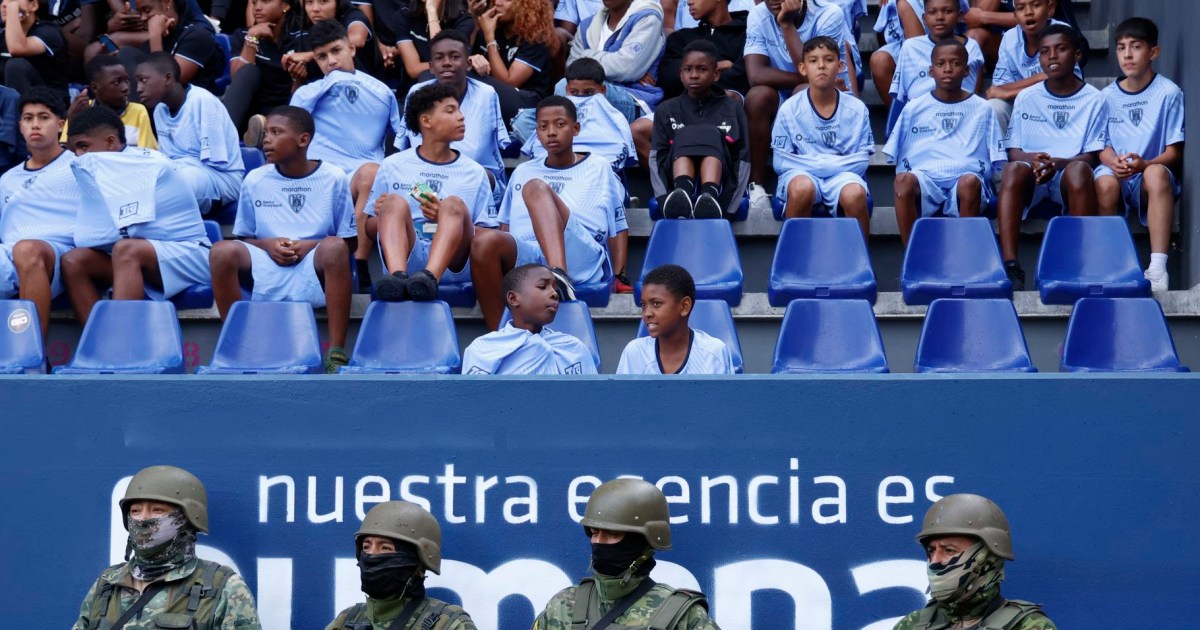
/cloudfront-eu-central-1.images.arcpublishing.com/prisa/OCS7V4Q6YKB6UMI76BXPPNGQJE.jpg)